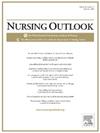Persistent post COVID-19: Implications for women’s health research and policy from members of the Women’s Health Expert Panel of the American Academy of Nursing
IF 4.1
2区 医学
Q1 NURSING
引用次数: 0
Abstract
Background
Despite that globally the percent of women and men who tested positive for COVID-19 appears equal and that men with COVID-19 were 60% more likely than women to be severely ill and to die from complications (Rozenberg et al., 2020), studies of sex differences show that women compared with men are more likely to manifest persistent post-COVID-19 syndrome (PPCS).
Purpose
In this paper, we address some of the extant evidence for impact of the PPCS on women’s health and well-being to underpin our suggestions for research and policy considerations.
Methods
We assessed key papers in the extant literature to formulate views on needed health-related research and policies.
Discussion
We discuss how key PPCS manifestations vary by sex, resemble sequelae uncovered for other chronically fatiguing or serious postinfectious trauma conditions, influence women’s reproductive health (e.g., menstrual cycle, fertility, pregnancy, and menopause transition), impair women’s social function and economic productivity, and challenge what is required for influential treatment and prevention.
Conclusion
To inform effective diagnosis, management and prevention of the significantly prevalent and debilitating PPCS, high on research and policy agendas should be uncovering multidimensional evidence of the impact on women, especially on their overall and reproductive health, well-being, social function and economic productivity.
持续后COVID-19:美国护理学会妇女健康专家小组成员对妇女健康研究和政策的影响。
背景:尽管在全球范围内,COVID-19检测呈阳性的女性和男性的百分比似乎相等,并且患有COVID-19的男性患重病和死于并发症的可能性比女性高60% (Rozenberg et al., 2020),但性别差异研究表明,与男性相比,女性更有可能表现出持续的COVID-19后综合征(PPCS)。目的:在本文中,我们讨论了PPCS对妇女健康和福祉影响的一些现有证据,以支持我们对研究和政策考虑的建议。方法:我们对现有文献中的关键论文进行评估,以形成对所需的健康相关研究和政策的看法。讨论:我们讨论了PPCS的主要表现如何因性别而异,类似于其他慢性疲劳或严重感染后创伤的后遗症,影响妇女的生殖健康(如月经周期、生育能力、怀孕和更年期过渡),损害妇女的社会功能和经济生产力,以及对有影响力的治疗和预防所需要的挑战。结论:为了有效地诊断、管理和预防非常普遍和使人衰弱的PPCS,研究和政策议程的重点应该是揭示对妇女的影响,特别是对其整体和生殖健康、福祉、社会功能和经济生产力的影响的多维证据。
本文章由计算机程序翻译,如有差异,请以英文原文为准。
求助全文
约1分钟内获得全文
求助全文
来源期刊

Nursing Outlook
医学-护理
CiteScore
6.20
自引率
7.00%
发文量
109
审稿时长
25 days
期刊介绍:
Nursing Outlook, a bimonthly journal, provides innovative ideas for nursing leaders through peer-reviewed articles and timely reports. Each issue examines current issues and trends in nursing practice, education, and research, offering progressive solutions to the challenges facing the profession. Nursing Outlook is the official journal of the American Academy of Nursing and the Council for the Advancement of Nursing Science and supports their mission to serve the public and the nursing profession by advancing health policy and practice through the generation, synthesis, and dissemination of nursing knowledge. The journal is included in MEDLINE, CINAHL and the Journal Citation Reports published by Clarivate Analytics.
 求助内容:
求助内容: 应助结果提醒方式:
应助结果提醒方式:


